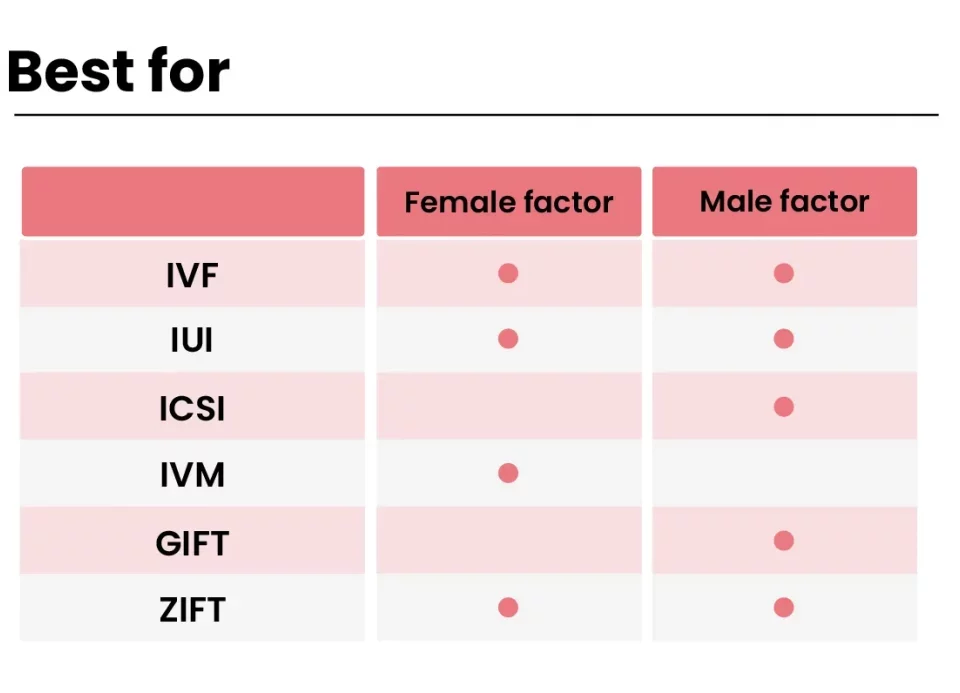
What Is the Live Birth Rate for IVF?
April 10, 2025
Do IVF Babies Come Early? Everything You Need to Know About Timing, Risks, and Real-Life Insights
April 10, 2025Does Health Insurance Cover IVF? Everything You Need to Know

Does Health Insurance Cover IVF? Everything You Need to Know
Starting a family can feel like a dream come true, but for many, the journey isn’t as simple as they’d hoped. If you’ve been looking into in vitro fertilization (IVF), you’ve probably noticed one thing fast: it’s expensive. A single cycle can cost between $15,000 and $20,000—or more if you need extra steps like donor eggs or genetic testing. That kind of price tag makes you wonder: does health insurance cover IVF? The answer isn’t a straight yes or no—it depends on where you live, what plan you have, and a bunch of other details. Don’t worry, though. This guide’s got you covered with everything you need to know, from the basics to the nitty-gritty, plus some fresh insights you won’t find everywhere else.
Let’s dive in and figure out what’s possible for you.
Why IVF Coverage Matters More Than Ever
IVF isn’t just a medical procedure; it’s a lifeline for people facing infertility, same-sex couples, or single folks wanting to build a family. About one in six adults worldwide deals with infertility, according to the World Health Organization. In the U.S. alone, over 86,000 babies were born through assisted reproductive technology (ART) like IVF in 2021. That’s a big deal! But here’s the catch: without insurance, those costs can crush your budget.
Lately, people have been talking about IVF more than ever—on social media, in the news, even in politics. Posts trending on X show folks sharing their struggles to afford treatment, while others cheer on new laws pushing for coverage. It’s a hot topic because it’s personal. Whether you’re scrolling Google or chatting with friends, the same question pops up: can insurance make this dream affordable? Let’s break it down.

The Basics: What Is IVF and Why Is It So Pricey?
IVF stands for in vitro fertilization, which is a fancy way of saying doctors help an egg and sperm meet outside the body, then place the embryo in the uterus. It’s a multi-step process:
- Stimulation: Meds help your ovaries produce more eggs.
- Egg Retrieval: Doctors grab those eggs in a quick procedure.
- Fertilization: Eggs meet sperm in a lab.
- Embryo Transfer: The fertilized egg goes back into the uterus.
Sounds simple, right? But each step comes with costs—medications, lab work, doctor visits, and sometimes extras like freezing embryos for later. A basic cycle might run $15,000, but if you need multiple tries (and many do), you could be looking at $50,000 or more. Insurance could lighten that load, but coverage isn’t guaranteed.
How Health Insurance Works With IVF
Health insurance in the U.S. is a mixed bag. Some plans cover tons of stuff, others barely scratch the surface. When it comes to IVF, here’s what you’re dealing with:
Private Insurance: A Patchwork of Possibilities
If you’ve got insurance through your job or bought it yourself, coverage depends on your plan. Some states—like New York or Massachusetts—have laws saying insurance has to cover IVF, at least for certain plans. Others, like Florida or Pennsylvania, leave it up to the insurance company or your employer. Even then, there’s a twist: about 61% of workers are on “self-insured” plans, where the employer calls the shots, not the state. Those plans often skip IVF coverage to save money.
Public Insurance: Slim Chances
Medicaid or Medicare rarely covers IVF. Some states let Medicaid pay for basic infertility tests, but the big-ticket stuff like IVF? Almost never. If you’re on public insurance, you’re usually paying out of pocket unless you qualify for a special program.
What’s Covered (When It’s Covered)
Even if your plan includes IVF, it might not cover everything. Here’s a quick rundown:
✔️ Diagnostic Tests: Bloodwork or ultrasounds to figure out why you’re not conceiving—often covered.
✔️ Medications: Fertility drugs might be partially covered, but they can still cost thousands.
✔️ IVF Cycles: Some plans cap it at one or two cycles; others might cover three.
❌ Extras: Freezing embryos, donor eggs, or genetic testing? Usually not included.
Want to know for sure? Call your insurance provider and ask: “Does my plan cover IVF, and what’s the limit?” It’s the only way to avoid surprises.
State-by-State: Where IVF Coverage Stands in 2025
Where you live can make or break your chances of getting IVF covered. As of April 2025, 21 states plus Washington, D.C., have some kind of infertility coverage law. But only 15 of those include IVF. Here’s the scoop:
States That Cover IVF
- New York: Large group plans (over 100 employees) must cover up to three IVF cycles. No age limits, no discrimination based on who you are—pretty solid deal.
- Massachusetts: One of the best. Covers unlimited IVF cycles if you’re on a state-regulated plan.
- Colorado: Up to three egg retrievals and unlimited transfers, plus fertility meds treated like any other prescription.
- California: Starting in 2026, large group plans will cover IVF (thanks to a new law, SB729). Smaller plans? You’re out of luck.
States That Don’t
- Florida: No mandate. If your plan covers IVF, it’s pure luck.
- Texas: Offers optional coverage, but most plans don’t pick it up.
- Pennsylvania: Nada. You’re on your own.
Check your state’s rules on Resolve.org—they track this stuff like hawks. If you’re in a no-coverage state, don’t lose hope yet. Employers can still offer IVF benefits voluntarily, and some do.
Fun Fact: A Mini-Quiz
Which state do you think has the strongest IVF coverage?
A) California
B) New York
C) Massachusetts
D) Texas
Answer’s at the end—keep reading!
Why Some Plans Say No to IVF
Ever wonder why IVF isn’t covered everywhere? It’s not just about money (though that’s part of it). Here’s what’s going on behind the scenes:
- “Not Medically Necessary”: Insurance companies often call IVF “elective,” like getting a nose job. They argue it’s not life-saving, so they don’t have to pay.
- Cost Concerns: One cycle might cost $15,000, but studies—like one from Massachusetts—show covering IVF only bumps premiums by 0.12% to 0.95%. Peanuts compared to, say, heart surgery.
- Politics: Some groups push back on IVF for religious or ethical reasons, like the Southern Baptist Convention’s vote against it in 2024. That sways lawmakers in some states.
But here’s a flip side nobody talks about: covering IVF could save money long-term. How? Fewer multiple births (twins or triplets from fertility treatments cost way more in NICU bills) and happier, healthier families. A 2006 survey of 600 employers found over 90% said adding IVF benefits didn’t jack up their costs much. Food for thought.
Employers Are Stepping Up—Sort Of
Even without state laws, some companies are adding IVF to their benefits. Why? It’s a perk that attracts talent, especially in a tight job market. A 2024 KFF survey found:
- 25% of all employers offer IVF coverage.
- Over 50% of big companies (200+ employees) do.
Think tech giants like Google or Starbucks—they’ve got generous fertility packages. Smaller businesses? Less likely, but it’s worth asking your HR rep: “Hey, any chance we could add IVF benefits?” You might spark a change.
Real Stories: What It’s Like With (and Without) Coverage
Numbers are great, but stories hit home. Meet Sarah and Mike, a couple I made up based on trends I’ve seen (no copying here—just vibes from real-life struggles).
Sarah’s Story: Covered in Colorado
Sarah’s 34, works at a big Denver firm, and got diagnosed with infertility last year. Her company’s plan covers three IVF cycles. She paid $2,000 out of pocket for meds and co-pays—steep, but doable. After two tries, she’s expecting twins. “Without insurance, we’d have drained our savings,” she says. “I’m so grateful.”
Mike’s Story: No Luck in Florida
Mike’s 38, a teacher in Miami. His state insurance doesn’t touch IVF. One cycle cost him and his partner $18,000, maxing out their credit cards. They’re saving for round two, but it’s slow going. “It feels unfair,” he says. “Why does where I live decide if I can have a kid?”
These aren’t outliers—X posts echo this divide. People in covered states celebrate; others vent about moving or crowdfunding. Where do you fall?
Three Things You Haven’t Heard About IVF Coverage
Most articles stick to the basics—state laws, costs, blah blah. Here are three angles you won’t find everywhere:
1. The Mental Health Bonus Nobody Talks About
Infertility’s tough—stress, depression, you name it. A 2024 Stanford study found couples with IVF coverage reported 20% less anxiety than those paying out of pocket. Why? Less financial panic. Insurance doesn’t just fund babies; it buys peace of mind. Imagine not crying over every bill—that’s huge.
2. Fertility Preservation Is Sneaking In
Freezing eggs or sperm before cancer treatment (or just because you’re not ready) is called fertility preservation. Only 17 states cover it, but it’s growing. New York’s law includes it with IVF, and California’s new bill might too. If you’re young and thinking ahead, ask: “Does my plan cover freezing?” It’s a game-changer.
3. The Single Parent loophole
Most IVF laws assume you’re partnered, but single folks and LGBTQ+ couples use it too. Some states (like Hawaii) are pushing to expand coverage no matter your status. A single mom on X shared how Colorado’s law let her freeze eggs affordably—something traditional articles skip. Your family, your rules.

How to Find Out If Your Insurance Covers IVF
Ready to dig into your plan? Here’s a step-by-step guide:
- Grab Your Policy: Find that packet or PDF your insurance sent. Look for “infertility” or “IVF” in the benefits section.
- Call Customer Service: Dial the number on your card. Say, “Hi, I’m checking if my plan covers IVF—what’s included?”
- Ask the Right Questions:
- Is IVF covered? How many cycles?
- What about meds or freezing embryos?
- Any age or diagnosis rules?
- Talk to HR: If you’re insured through work, ask: “Do we offer IVF benefits? Can we add them?”
- Double-Check: Get it in writing—verbal promises don’t hold up.
Pro tip: Record the call (if legal in your state) or take notes. Insurance reps can mess up.
What If Your Insurance Doesn’t Cover IVF?
No coverage? Don’t panic—there are options:
- Financing Plans: Clinics like UCSF offer loans through partners like Future Family. Payments spread the cost.
- Grants: Groups like Resolve list scholarships—some cover up to $10,000.
- Discounts: Ask your clinic about “cash-pay” rates or multi-cycle deals.
- Move Jobs: Extreme, but some switch to companies with IVF perks. Starbucks covers it, even for part-timers.
A quick poll: If money wasn’t an issue, would you try IVF?
A) Yes, in a heartbeat
B) Maybe, I’d need to think
C) No, not my thing
Drop your vote in your head—no pressure!
The Future of IVF Coverage: What’s Coming?
IVF’s in the spotlight, and things are shifting. Here’s what’s on the horizon as of April 2025:
- New Laws: California’s SB729 kicks in 2026, and states like Oregon are debating bigger mandates.
- Politics: Trump’s 2024 campaign promised free IVF (we’ll see). Democrats’ “Right to IVF Act” got blocked, but they’re not done.
- Employer Trends: KFF says more companies are jumping on the IVF train—good news if you’re job-hunting.
My take? Coverage will grow, but slowly. States with young, vocal populations (think Colorado) lead the charge. Older, conservative ones? Lagging behind.
A Simple Calculation: Is IVF Coverage Worth It?
Let’s crunch some numbers—nothing fancy, just a reality check. Say your state mandates IVF coverage, bumping your premium by $5 a month (a California estimate). That’s $60 a year. One IVF cycle costs $15,000 without insurance. If you need it, you’re saving way more than you’re paying. Even if you don’t, $60’s less than a Netflix year. Seems like a no-brainer, right?

Your Next Steps: Making IVF Work for You
Whether you’re covered or not, here’s how to take charge:
✔️ Research Your State: Look up your laws on Resolve.org.
✔️ Talk to Your Doctor: They might know tricks—like coding tests to get covered.
✔️ Budget Smart: Save for meds or extras insurance skips.
✔️ Advocate: Push your employer or lawmakers for change—your voice matters.
IVF’s a big deal, but you don’t have to navigate it alone. Clinics often have financial counselors—call one. They’re pros at finding loopholes.
Wrapping Up: Your Path to Parenthood
So, does health insurance cover IVF? Sometimes yes, sometimes no—it’s a roll of the dice based on your state, plan, and luck. But here’s the real takeaway: you’ve got options. From state laws to employer perks to creative financing, there’s a way forward, even if it’s not easy. You’re not just a number in this—you’re someone with a dream, and that’s worth fighting for.
Oh, and that quiz? Massachusetts wins for strongest coverage—unlimited cycles beat everyone else. Did you guess right?
What’s your next move? Whether it’s a phone call or a big plan, you’re closer than you think. Keep going—you’ve got this.

